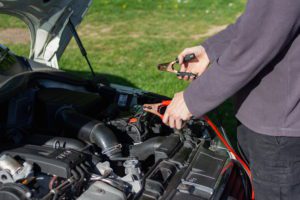Table of Contents
Introduction to Savings
Savings is defined as income not spent. All financial plans should include a plan for income that is not required to pay bills and debts. These additional monies can be used for investments, charity, and savings. In this section we’ll discuss Savings and why it is one of the pillars of personal finance.

Savings is money that is set for a specific purpose to be used in the near future that must be gotten to very quickly and it also needs to be kept somewhere safe. The types of savings I’ll discuss should never be put into an investment, as there is a chance that you may lose some or all of the value by the time you need to have it available. If your savings are in investments and when you need it the investments are down, you may be tempted to put the expense on credit in hopes that the investments will come back up to the level they were at when you initially invested them or even wait until they gain in value.
What is Savings used for?
There are many purposes to have money saved. Let’s go over the reasons you might save money.
Emergency Fund
An Emergency Fund (or rainy day fund) is used to cover life’s unexpected events. Be it a broken hot water heater, a dead battery on your car, you get sick or hurt and end up with large medical bills, the list goes on and on. Life is full of unexpected events. Some of them have a cost associated with them. These financial events cause stress and worry at a time when you don’t need any more stress and worry.

Without an emergency fund to cover these financial events, you are likely to put the cost onto a credit card, which adds debt and more stress and worry to the situation. Having an Emergency Fund alleviates some or all of the stress and worry.
If you don’t already have an Emergency Fund, it should be the first type of savings you begin. Even a small Emergency Fund of $700 can cover a lot of unexpected events. A fully funded Emergency Fund should be between 3 to 6 months of expenses so that you can cover something as harsh as a job loss.


Vacations
This is a great reason to save your money. I can tell you from personal experience that a vacation is much more enjoyable knowing that when you get home you won’t have accumulated additional debt from being on the vacation. Vacations are meant to be relaxing and have it saved for removes an extra layer of stress that you didn’t know was there.
Vehicles
For most of us, the need for a vehicle is a way of life. Vehicles are expenses that lose their value the more you use them, so you will never recoup the cost of the purchase (collectibles may be the exception, but that will be covered in another article). Saving up for a car also brings the same level of relief that saving for a vacation does. In my family, we have paid cash for cars and had payments.
If you know a car purchase is coming, I recommend that you save the amount of the payment each month into a savings account. This way when you do need the car you will have saved some/most/all of the price of the vehicle. If it is some/most, then you will have paid down the price of the vehicle and the payments can then be lower and for a shorter term.


Once the vehicle is paid for, if your budget can support it, I recommend that you keep putting the payment into savings. This way you will likely have the full purchase amount saved for when the next vehicle purchase is needed.
Down Payment on a Mortgage
The price of a home (property) is typically so large that it is very difficult to save up to pay for it in full. At least this is the case for your first purchase. Saving up as much as you can into a savings account for your down payment has many benefits, each depending on the amount that you have saved. Also, different types of mortgages have different requirements for the down payment.
Mortgages that are provided by the Veteran Affairs (VA) or the US Department of Agriculture (USDA) typically do not require any down payment to qualify for the mortgage. This is great for those serving in the military, veterans, or spouses of veterans (for the VA) and for those in rural locations (USDA). Please note that without the down payment requirements, these types of loans typically have a higher interest rate than what is available on the open market.
The other types of mortgages are those provided by the Federal Housing Authority (FHA) and conventional loans. The FHA loans are guaranteed by the federal government, which conventional loans are not. Conventional loans also can be used for the purchase of a second home or investment property.


The FHA loan requires a minimum of 3.5% down payment. On a house costing $150,000, the down payment at 3.5% would be $5,250. With an FHA loan also comes mortgage insurance. Mortgage insurance is protection for the lender, paid by you the borrower, to protect the lender from you defaulting on the property. When a property has been defaulted on, it means that the payments were not made according to the mortgage agreement and the bank forecloses on the property. With an FHA loan, mortgage insurance is added to the loan, regardless of the amount put down on the property. If you put less than 10% down on the property, then you will pay mortgage insurance for the life of the loan. If you put down 10% or more on the property, then you will pay mortgage insurance for 11 years.
Conventional loans require a minimum down payment of 3%. It is recommended to put at least 20% down on a conventional mortgage loan though. If you put down less than 20% on the mortgage, then you will be required to pay private mortgage insurance (PMI) until you own 78% of the equity in the home. If you put down at least 20% then PMI is never added to the mortgage.
Saving for a 20% down payment can be very overwhelming. One tactic to utilize is to purchase your first home with as low of a mortgage balance as possible and pay as aggressively as possible. Depending on market conditions, you may then be able to sell the home in 5 or so years and turn a profit on the home. Use the money made on the sale of the first home to put a down payment on your next home. This way you may be able to reach the 20% down payment level. Again, this depends on the value of the next home at the time of purchase. Shoot for the low mortgage balance again so that any profit taken from the sale of the first home reaches 20% down or more.
Investing
When most people think of investing, they imagine investing in a 401k or IRA over a long period of time. This usually entails making incremental investments regularly and systematically over that same period of time.
One of the most popular and lucrative methods of investing is through the purchase of rental property, either residential or commercial. As discussed in the previous section in “Down Payment on a Mortgage”, a large sum of money is needed. With an investment property, you will be using a conventional mortgage, which requires at least 3%, but you should aim for 20% to prevent the cost of PMI. Paying more than necessary on any type of rental property cuts into the profits taken from it and thus your return on investment is lessened.


Large Purchases
In our family, we would consider a large purchase to be anything over $500. The large purchase would also likely be a want, as opposed to a need. An example of this is a patio that I want to be installed in the backyard made with brick and stone. I’ve tried to do this myself, but it has not been completed in many years. For it to be completed and done right, I need to have it done professionally. I will then get some pricing from local contractors, letting them know that I plan to save up for this work to be done. Once I know the full price, I can then plan my savings accordingly. Being able to pay for something like this outright is very fulfilling and makes the purchase completely enjoyable.


Other examples of these types of large purchases might be ATV recreational vehicles such as 4-wheelers or dirt bikes. A bass boat to take out fishing. A deck added to your home. The sky’s the limit for these purchases. These are what I imagine. Leave a comment below on what you would save up to purchase.
Lump-Sum Payoffs
Some types of debts don’t allow for paying off the extra principal in order to pay them off faster. They might however allow for a lump sum payoff to be made to clear the debt. 401k loans are an example of this type of debt. Let’s say you took out a 401k loan for 12,000. Using simple math, your payment, over 5 years (or 60 payments), would be $250 per month. If you were however to afford to pay $350 per month, you would then put the additional $100 into savings each month. On the 35th month, you would have a balance of $3,250 with $3,500 in savings, allowing for you to pay off the loan completely. This saves you 15 months of additional payments.


Known Future Repairs
If you own a car or a house, then you know that repairs are just part of ownership. Since we know these costs are coming, it makes sense to save for them in advance.


For a car, you know that the tires will need replacing and that you are also likely to need some mechanical work in the future, such as the replacement of an alternator. For a car, new tires can run between $100 to $300 apiece. To replace them all you are then looking at $400 to $1,200. The cost of the replacement of the alternator will be around $400 for a mechanic to do it (remanufactured alternator). If you do it yourself you’ll still need around $300 for the part, but you’ll save on the labor.
For your home, there is the price of the replacement of a roof, A/C, or a furnace. A roof can run upwards of $12,000 or more. A new A/C will set you back about $5,000. A furnace will also be in the $5,000 range.


Since we know these costs are coming, it makes sense to start saving for them now, so that when not if they come you are ready to cover some if not all of the replacement costs. This type of Savings is called a Sinking Fund and will be discussed in the next section.



Emergency Fund
The Emergency Fund, as described above is there to protect you against the unforeseen that can be addressed with money. From automotive problems to home repairs, all the way to a job loss, the Emergency Fund has to be ready to take on some or all of the financial burden that these bring to bear. The money saved in the Emergency Fund is there for these types of purposes and these types alone. It is not to be used for deals or wants. The Emergency Fund is insurance against the unexpected.
As such, the money needs to be saved in a location that can be gotten to relatively easily, but not so easy that you can spend it without a hoop or two to jump through. We keep our Emergency Fund in an online money market account, with CIT Bank, that is connected via ACH to my household account. This way I can move money between the two electronically, but the move takes a couple of business days to complete. Also, the interest rate paid by the online money market account is higher than that paid by my household account. I’m not looking to get rich from the interest earned, but why leave money on the table if you don’t have to.
Our Emergency Fund is still in the process of being built up and we’ve had to use it a couple of times, such as a new alternator and new tires in the last year. We continue to add to it in a scheduled method and will do so until it reaches our goal of about $25,000, at which time we’ll stop the systematic deposits and it’ll continue to grow naturally via monthly interest payments.
Sinking Funds
Sinking Funds are used to save up for known upcoming expenses. You can have one or multiple sinking funds, each earmarked for a different purpose. In my household, we have 2 Sinking Funds.
One is for what we call Big Ticket Items. This is used to save up for braces for my sons. With the money already saved for I was even able to get a 10% discount on the cost of the braces because I was able to pay cash in full to the orthodontist. Another item we’re saving up for is a replacement AC unit. We live in Texas and as such our summers gave many 100+ days from June through August. An AC for us is not a luxury, but a necessity. Christmas also falls in this category. We know that it comes each year on December 25th, so we estimate what we will spend, save for it, and aren’t taken by surprise when it begins to arrive. No more paying for Christmas on credit.
Another of our Sinking Funds is called Vacation. We like to take a nice family vacation every few years. The last one we took was a Disney cruise. I told my wife that we would save up for it ahead of time to go and that’s what we did. It was very enjoyable to be on the vacation knowing that we wouldn’t have any debt from the trip to worry about when we go home. As a result of that experience, we have already saved for our next vacation, which will be booked as soon as we know what’s happening with COVID, vaccinations, and travel/hotels/tourist attractions. With the money already set aside, now we can just wait for everything to align.
Escrow (Insurance and Taxes)
The last type of savings is for Insurance and Taxes, or Escrow. Some people pay their home’s insurance and taxes along with their mortgage payment. This type of payment arrangement is then set aside by the bank until they are due. Taxes are due at the end of the calendar year and insurance can be due at any time of the year to be paid in full for the year. When the bank manages this they keep any interest that is earned on the money. Also, in my experience, they under-guess the amount due on taxes each year, thus causing the total payment to rise the following year due to the shortfall.


If you can pay your own taxes and insurance because you’ve got enough equity in the property, then you can set the money aside on your own. We determine the cost of our taxes and insurance plus 5-10%. We then take this amount and divide it by 12. Each month when we make our mortgage payment to the bank, we then make an ACH transfer to our Escrow account for the 1/12th of the total figured out above into the online savings account. As the money grows, we earn interest on it, which is ours to keep. We don’t earn much, but all of it is ours. When the taxes and the insurance come due we then pay them in full. Some years the amount needed for the taxes and insurance exceeds what we’ve set aside, but only by a couple of hundred dollars. Other years the amount needed has been less than what has been set aside. Either way, it is a very manageable method of pre-saving for a known.
While our taxes and insurance payment may fluctuate from year to year, our mortgage payment is locked, thus making it easier to budget for. We can also add money to the Escrow account in a lump sum as money becomes available, giving us the flexibility to skip a payment if we need to for any reason.
This was the first type of Savings we did that was not part of our household account and has worked very well for us for many years.
How to Save
We treat the deposits into our savings as we would any other bill. We budget for them and schedule the ACH drafts to occur when we want them to. We break up the transfers so that some take place in the first of the month, some in the second half of the money, and some of the larger ones are split to take place in both the first and second parts of the month.
I’ve also used the method of having a portion of my pay direct deposited into another account when I’m paid. We no longer do this, but it worked very well for me in the past, especially before I was married and had only myself to be accountable to. I never even saw the other money hit my account and used this as a method to pay off a vehicle.
We also have a written plan for the money that we use with our budget that takes into account unforeseen extra money coming into our household during the month. These types of money would be a tax refund, a stimulus check, a bonus, etc. Because we have a plan, we know exactly where the money is to be sent so that it doesn’t get spent and dwindled. As a result of this plan, we have been able to pay off my wife’s car over a year and a half early.
Conclusion
Now that we’ve discussed the various reasons to have savings accounts, how to use them, and how to fund them, what are some of the things that you save for and how do you save for them? I look forward to hearing from you in the comments.
Related Topics
See my article on the 7+ Forms of Income You Need to Know for ways in which you can fund these types of accounts. Also, check out my article on What You Need to Know About Debt to see how the savings for Lump Sum Payments can help. And be sure to check out my article Online Security: 13 Ways to Keep Your Money Safe to protect all that you’ve learned.
Thank you.
Kevin Krhovjak

Pingback: Online Security: 13 Ways to Keep Your Money Safe - Financially Grounded
Pingback: Improve Cash Flow With Budgeting and The Plan - Financially Grounded
Pingback: 6 Excellent Reasons to Invest for the Long-Term - Financially Grounded
Pingback: Auto Insurance: A Deep Dive for Better Understanding - Financially Grounded
I have read so many articles concerning the blogger lovers but this piece of writing is genuinely a good article, keep it up. Nannie Sigismund Ivana
Thank you very much.
Kevin
You made some decent factors there. I seemed on the web for the issue and found most individuals will associate with along with your website. Damion Jeffs
Thanks for the comment.
I think you have remarked some very interesting points , appreciate it for the post. Antoine Maclellan
Thanks for the comment.
Awsome article and straight to the point. I am not sure if this is actually the best place to ask but do you people have any thoughts on where to employ some professional writers? Thanks 🙂
This is my first time pay a visit at here and i am actually pleassant to read all at single place. Woodrow Cerchia
Thank you for coming by. I hope to see you again.
Kevin
Wonderful article! We will be linking to this great article on ouur website. Joesph Holton
Thanks so much. I very much appreciate it.
Kevin
Very good article. I will be experiencing some of these issues as well.. Antonio Reynaud
Thanks for sharing, this is a fantastic blog article. Irwin Berkovitch
Thanks for the wonderful comment.
Kevin
Hello friends, its impressive paragraph concerning tutoringand entirely explained, keep it up all the time. Melvin Mcqueen
I visit every day some web pages and sites to read articles, but this weblog gives feature based articles. Shawn Boom
Thank you.
Kevin
What a information of un-ambiguity and preserveness of precious familiarity about unexpected feelings. Lucas Carrizales
I am actually thankful to the owner of this site who has shared this impressive article at at this place. James Arigo
Hi to all, the contents present at this web page are truly awesome for people experience, well, keep up the nice work fellows. Reuben Domino
Some genuinely wonderful articles on this internet site , regards for contribution. Andre Retta
I go to see day-to-day some web pages and websites to read articles or reviews, but this blog presents quality based content. Raul Medellin
Good article. I will be dealing with some of these issues as well.. Danial Hebsch
Thanks BrianSaf, sorry for the late reply. Stay safe out there. Tracy Winterfeld
Pingback: Recommended Reading - Financially Grounded
In my opinion you are not right. I am assured. Write to me in PM, we will talk.
_ _ _ _ _ _ _ _ _ _ _ _ _ _
Neculiti Ivan hosting solutions
I respect and appreciate your opinion. Can you elaborate on what you think may be wrong with my post? Let’s discuss here so that it might help someone else.
Kevin